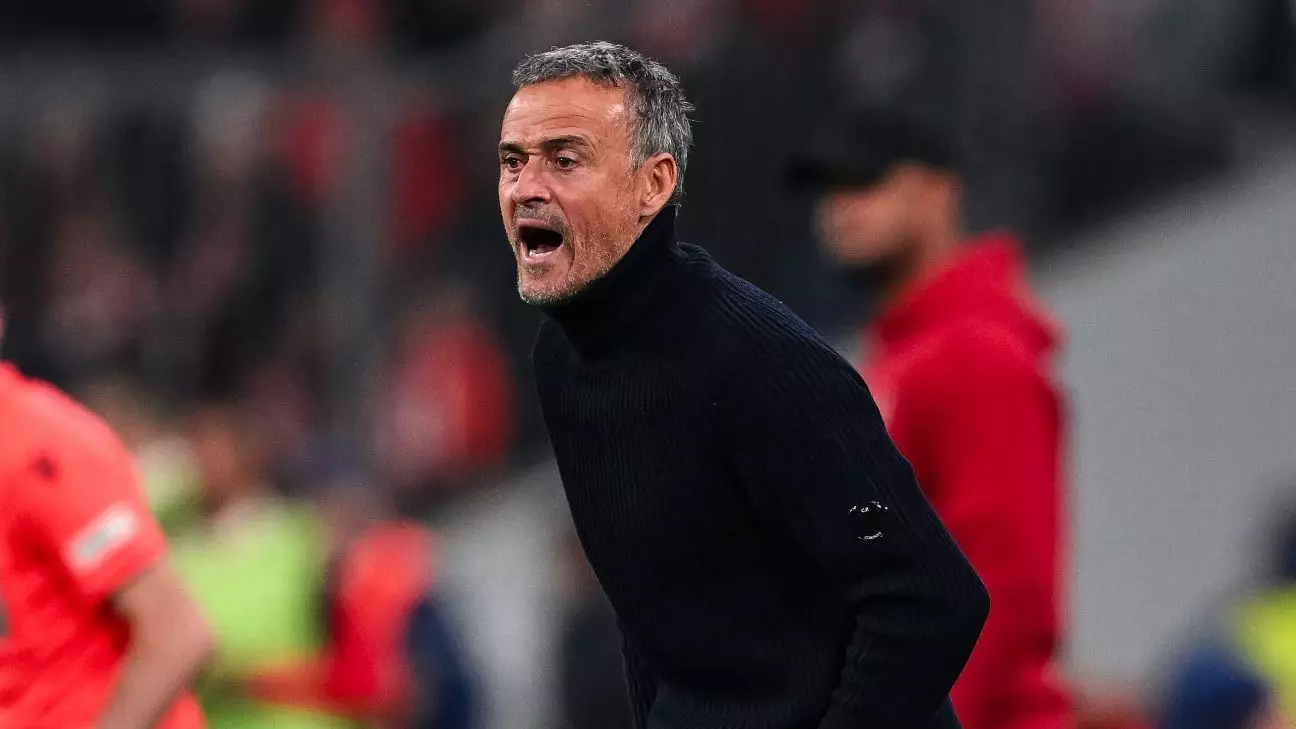Paris Saint-Germain (PSG) faced a stinging 1-0 defeat against Bayern Munich in a crucial Champions League clash that has left the team in a precarious position. This loss marked the third defeat in their last four Champions League matches, revealing underlying issues within the squad and the managerial approach. With the team reduced to ten men after Ousmane Dembélé’s sending-off, the situation became further complicated for the Ligue 1 leaders. The defeat has not only dented their confidence but also fueled questions surrounding their ability to compete on Europe’s biggest stage.
Luis Enrique’s Response
In the post-match interview, PSG’s head coach, Luis Enrique, took full responsibility for the loss, which is a commendable act of leadership. However, his vehement insistence on accepting blame while brushing aside broader systemic issues raises concerns. “Responsibility is always global,” he stated, underscoring the shared nature of accountability within a team environment. Nevertheless, by focusing solely on personal accountability, he risks deflecting attention from other contributing factors—such as tactical errors, player performance, and preparation—that could have influenced the outcome.
Enrique’s interactions with reporters were marked by frustration, revealing the emotional toll such defeats can take on a coach. While his willingness to accept criticism can be seen as a strength, it may also highlight a deeper frustration with the squad’s inconsistency and his own strategic choices. His comment, “If there is anyone to blame, it is me,” exemplifies his approach to leadership but could also suggest a lack of adequate measures to address the root causes of the team’s struggles.
Patterns of Inconsistency
PSG’s recent Champions League record is alarming, with only one victory to show from their last four outings in the competition. This statistic is disappointing for a club of PSG’s stature, where championship aspirations should not only target domestic success but also aim squarely at European glory. The current standings, which leave them facing the prospect of an early exit, speak volumes about the tactical deficiencies that need immediate rectification.
Luis Enrique mentioned that these defeats provide valuable information regarding player futures, indicating a possible turnover in the squad as he assesses who among the players is suited to his vision for the club. Such a viewpoint underscores the urgency of the situation. It also reflects a shift in focus, suggesting that the current squad may not be wholly adequate to bear the weight of the club’s lofty ambitions.
The situation at PSG is one of mixed emotions and urgent need for strategic recalibration. While Luis Enrique’s acceptance of blame reflects admirable accountability, it also prompts a deeper analysis of the team’s collective approach to adversity. As the club navigates through these challenging waters, it will be crucial not only to address immediate tactical failures but also to foster a culture of resilience that can withstand the pressures of high-stakes competitions. The road ahead is fraught with challenges, but with decisive action, PSG might still steer its ship toward calmer waters and reclaim its place among Europe’s elite.

